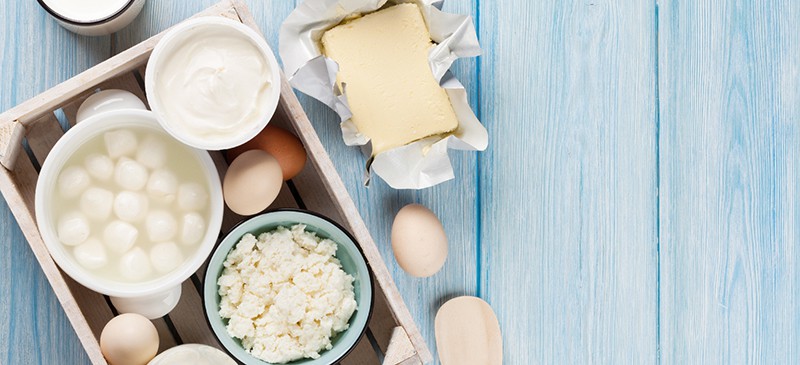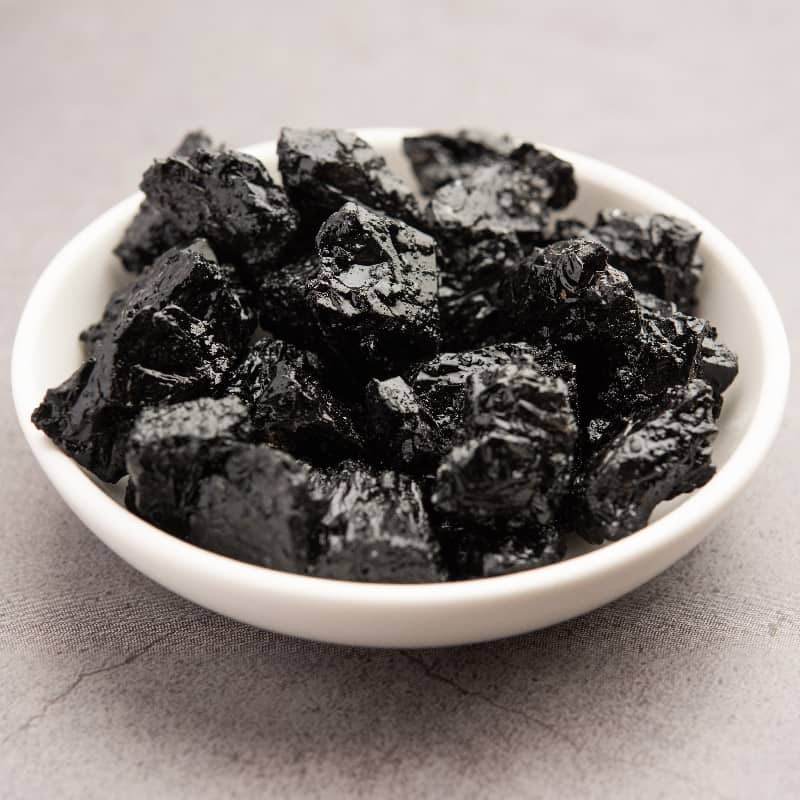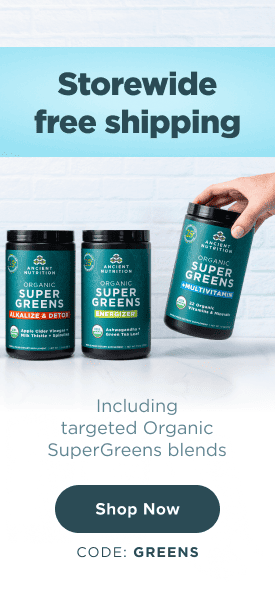This Dr. Axe content is medically reviewed or fact checked to ensure factually accurate information.
With strict editorial sourcing guidelines, we only link to academic research institutions, reputable media sites and, when research is available, medically peer-reviewed studies. Note that the numbers in parentheses (1, 2, etc.) are clickable links to these studies.
The information in our articles is NOT intended to replace a one-on-one relationship with a qualified health care professional and is not intended as medical advice.
This article is based on scientific evidence, written by experts and fact checked by our trained editorial staff. Note that the numbers in parentheses (1, 2, etc.) are clickable links to medically peer-reviewed studies.
Our team includes licensed nutritionists and dietitians, certified health education specialists, as well as certified strength and conditioning specialists, personal trainers and corrective exercise specialists. Our team aims to be not only thorough with its research, but also objective and unbiased.
The information in our articles is NOT intended to replace a one-on-one relationship with a qualified health care professional and is not intended as medical advice.
Top 7 Sour Cream Substitute Options & How to Use Them
November 23, 2019

Sour cream is used in so many classic dishes, but what if you don’t like it or for, one reason or another, you just can’t eat it? That’s when you need to find a sour cream substitute.
Admittedly, it may seem daunting. After all, it is one of the most popular toppings for a baked potato and also a tangy addition to a homemade coffeecake.
You may not even realize that it’s often the base for many dips and dressings.
However, there are actually many potential substitutes for sour cream — with some closer to the real thing than others. Let’s take a look at some of the leading sour cream substitute options and see which ones are both nutritious as well as delicious.
Spoiler alert: There are even some non-dairy substitutes to consider!
What Is Sour Cream?
Sour cream is commonly used in cooking, baking and as a condiment or topping.
It’s a dairy product made by the fermentation of cream with lactobacilli bacteria. This variety of lactic acid bacteria can be intentionally added (as in many store-bought versions), or it can naturally occur.
Sometimes other strains of bacteria are used as well.
It is a fermented food, but it is not fully fermented. This is why it needs to be refrigerated when it’s both unopened or opened.
Unfortunately, the good bacteria can often die off during processing so it’s not the best source if you’re looking to add more probiotic foods to your diet.
Early versions were made by allowing unprocessed, fresh milk to sit at room temperature. During this time, the cream would rise to the top, and naturally occurring bacteria would then sour it.
That was a probiotic-rich version, but that’s not what’s on store shelves today.
In general, sour cream adds a tart, rich flavor and a moist, creamy texture to whatever you combine it with.
Nutrition Facts (and Potential Benefits)
What does sour cream nutrition look like? Are sour cream calories high?
One tablespoon (approximately 12 grams) of regular, cultured sour cream contains about:
- 23.2 calories
- 0.4 grams carbohydrates
- 0.2 grams protein
- 2.4 grams fat
- 69.1 international units vitamin A (1 percent DV)
- 13.2 milligrams calcium (1 percent DV)
- 13.8 milligrams phosphorus (1 percent DV)
Clearly it’s not the most nutrient-rich food, but is there anything good about it? It is a partially fermented food so some versions can provide gut-boosting probiotics or good bacteria.
It is low in carbohydrates and sugar as well and contains a small amount of healthy fat, protein and calcium.
If you’re looking to obtain probiotics and really up the potential benefits, you may want to consider making a homemade sour cream recipe.
Reasons to Swap It Out
There are various reasons why people choose to swap out sour cream, such as:
- Milk allergy – A milk allergy is a clear reason to need a substitute for sour cream since it is traditionally made from cow’s milk.
- Lactose intolerance – Different from a true allergy to milk, symptoms of lactose intolerance include bloating, gas and diarrhea, after you consume something that contains lactose.
- Dairy-free diet – For one reason or another, if you’re avoiding dairy, sour cream is definitely on the “no” list.
- Vegan diet – Since animal products are not a part of a vegan diet, this is another reason to need a sour cream substitute.
- Paleo diet – If you’re following a strict Paleo diet plan, you may not consume dairy products because hunter-gatherers did not milk cows.
- Low-fat diet – If you’re following a low-fat diet, it’s important to know that sour cream nutrition includes a significant amount of fat per serving. The majority of calories in sour cream come from its fat content. Some people opt for a low-fat version while others want to skip the it all together.
Sour Cream Substitute Options
You can purchase lactose-free sour cream in stores, or if you’re looking to avoid unhealthy additives, you can learn how to make it yourself.
Sour cream recipes vary, but one easy recipe only requires two ingredients: heavy whipping cream and buttermilk.
If you’re looking for a sour cream substitute, you have a few options, including:
Yogurt
You can use yogurt as a substitute for sour cream in a 1:1 ratio. Greek yogurt nutrition is rich in protein and has a thicker consistency similar to sour cream.
If you want to avoid cow’s milk, you can opt for a goat’s milk yogurt.
Yogurt makes a great sour cream substitute if you’re using it as a topping. Try it as a sour cream substitute for tacos, chili or a baked potato.
It can also be swapped in dressings and used as a sour cream substitute for cheesecake and other desserts too.
For baking, one cup of yogurt combined with one teaspoon of baking soda can successfully replace one cup of sour cream.
Kefir
Kefir is a fermented milk beverage rich in probiotics that can also be used in place of sour cream. It is not as thick as yogurt, but it certainly provides tartness.
Like yogurt, kefir is a rich source of calcium, and kefir benefits immunity, the gut and more.
Like yogurt, you can use it in a 1:1 ratio in sauces, dressings or as a condiment to replace sour ceam.
Buttermilk
Buttermilk is traditionally made from the liquid leftover from churning butter from fermented cream. Made in this traditional fashion, buttermilk is rich in probiotics yet low in lactose.
Made in a conventional way, buttermilk is created by adding bacterial cultures (such as Lactococcus lactis or Lactobacillus bulgaricus to regular milk. (Find out how to make buttermilk here.)
What about using regular milk to replace sour cream? It won’t really do the trick because on its own, cow’s or goat’s milk doesn’t have any tang.
You can combine a cup of whole milk mixed with one tablespoon of lemon juice or vinegar to replace it in baking recipes. This is a common sour cream substitute for stroganoff recipes.
Cottage Cheese
Another sour cream substitute for cooking and baking is cottage cheese. Cottage cheese nutrition is very high in protein.
One cup of cottage cheese contains an impressive 28 grams of protein. It also provides many valuable nutrients, including calcium, phosphorous, selenium, riboflavin and calcium.
If you’ve eaten sour cream and cottage cheese, you already know that cottage cheese has a much lumpier consistency due to its curds. To smooth it out, you can simply place cottage cheese in a blender.
To replace one cup of sour cream, blend together one cup of cottage cheese with a quarter cup of yogurt or buttermilk (to add tartness).
Mayonnaise
If you’re looking for a sour cream substitute, mayo is another option that can typically be used in a 1:1 ratio.
Mayonnaise in place of sour cream works best in dips and dressings. It’s not quite as tangy as, and most mayos include eggs.
Avoid store-bought mayonnaise that contains processed oils (which they often contain) like sunflower, safflower or canola oils. Look for ones that contain healthier oils like olive oil and cage-free, organic egg yolks.
You can also try making this healthy and delicious Coconut Oil Mayonnaise Recipe.
Coconut Yogurt or Coconut Cream
As you can see, a lot of sour cream replacements are dairy-based, but there are definitely options that are dairy-free. The first is coconut yogurt.
Yogurt made using coconut milk is a dairy-free option that can replace sour cream in some recipes.
As a popular sour cream substitute keto dieters love, coconut yogurt has a fat content and creamy texture similar to what it’s replacing. Look for unsweetened varieties, especially if you’re using it in savory recipes.
Another sour cream substitute that’s dairy-free is coconut cream. You can obtain coconut cream by putting full-fat canned coconut milk in the fridge for a few hours or overnight.
Scoop out the coagulated cream, and combine it with a teaspoon of lemon juice and a pinch of sea salt. Cover the mixture, and refrigerate it for at least 30 minutes before use.
Cashew “Sour Cream”
This is a great sour cream substitute that is vegan-approved. Make your own dairy-free sour cream replacement by making a cashew sour cream recipe.
You’ll need the following ingredients:
- 1 cup raw cashews
- 2 teaspoons apple cider vinegar
- 1 teaspoon lemon juice
- 1/8 teaspoon fine sea salt
- 1/4 cup water
After soaking the cashews in a half inch of boiling water for 30 minutes, drain them and then combine them with the rest of the ingredients listed in a blender. Blend into smooth, adding more water if necessary.
Risks and Side Effects
If you’re using real sour cream, it’s important to watch out for additives, which may have unwanted side effects. Common preservatives and additives found in processed varieties include carrageenan, guar gum, calcium sulfate, potassium sorbate, locust bean gum, modified food starch and more.
If you’re looking for a store-bought substitute, read ingredient labels carefully. Just because something is dairy-free doesn’t mean it’s healthy.
Watch out for artificial preservatives and other questionable ingredients.
If you have an allergy to any of the sour cream substitutes listed above or their ingredients, this is not a good option for you.
Conclusion
- Sour cream is a dairy product made by the fermentation of cream (this can be done naturally or in a processed manner).
- It is commonly used to make savory recipes, baked goods, dips and dressings. It’s also a common condiment or topping.
- For many reasons, people often look for substitutes, whether it’s because they simply don’t have it on hand for a recipe or they are following a special diet.
- They are many things that can replace it that are also dairy-based, yet come with a higher protein and overall nutrition content such as yogurt and kefir.
- You can use cashews or coconut milk to create a vegan sour cream, which is also dairy-free.














